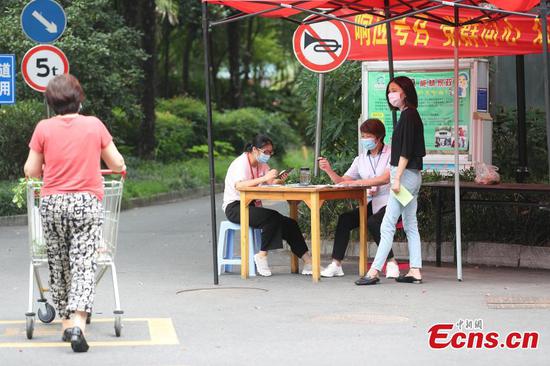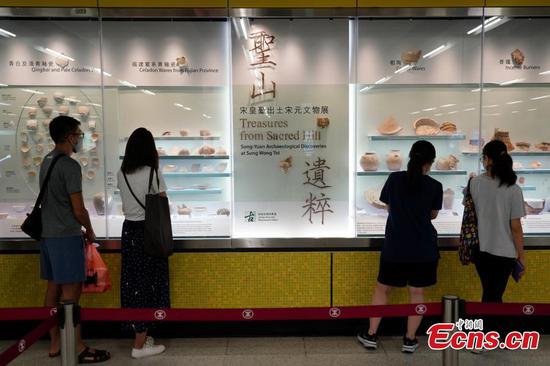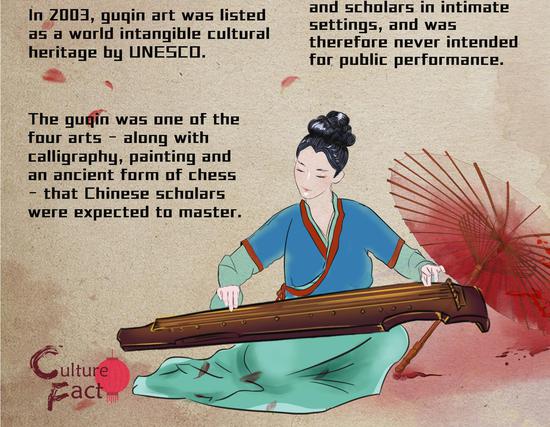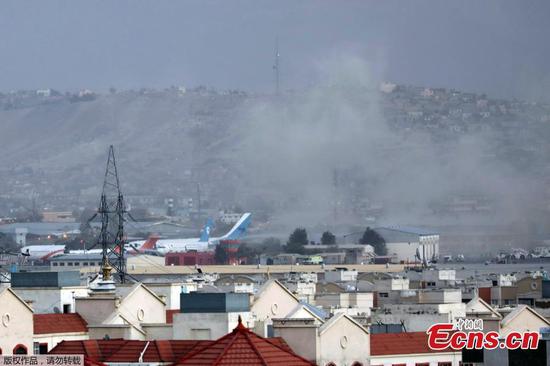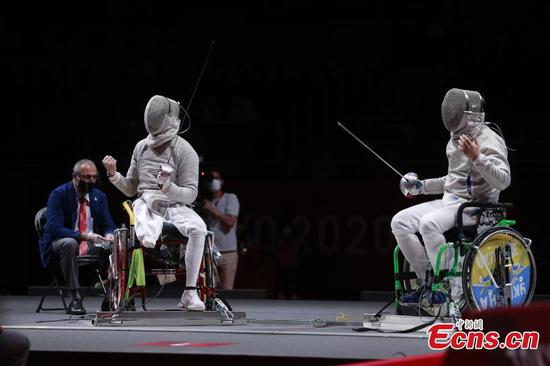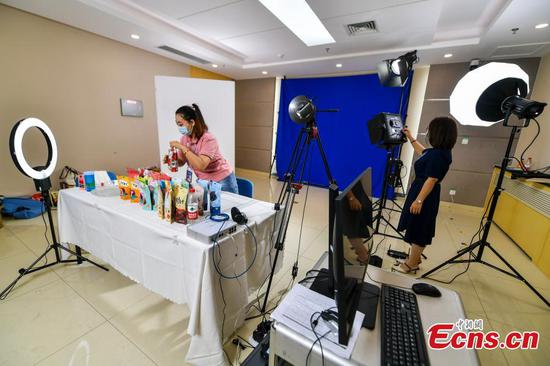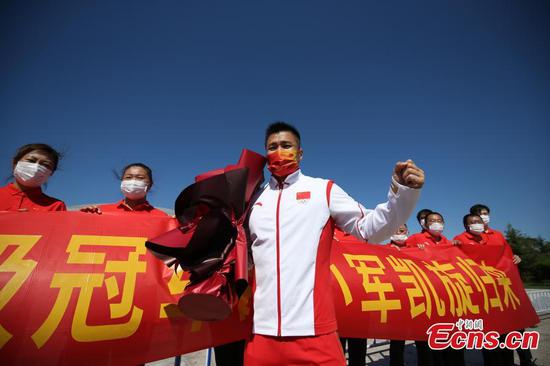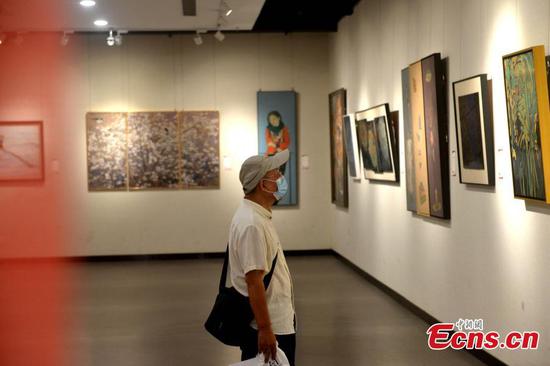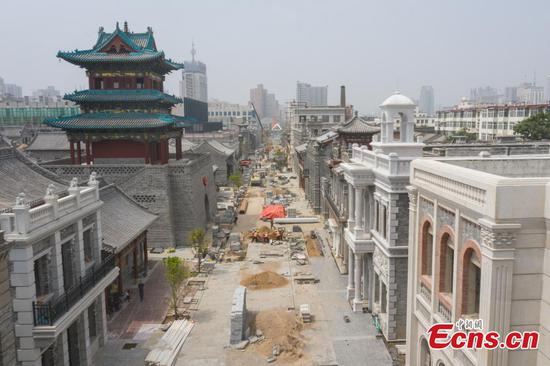In the latest high-level diplomatic contact, Beijing has emphasized that the United States must stop its "relentless smearing and attacks against China" as a condition for Washington to put the bilateral ties back on track.
Top U.S. policymakers should not harbor any unrealistic hope that Beijing would engage in substantive collaboration with it on global issues when due respect to China is missing, experts and officials said.
It also should stop trying to discredit China on a wide range of topics, from COVID-19 origin tracing and Hong Kong to human rights, to pave the way for advancing key global and bilateral agendas, they added.
The U.S. should quit "violating China's sovereignty, security and development interests", State Councilor and Foreign Minister Wang Yi said on Sunday during a phone call with U.S. Secretary of State Antony Blinken.
It was the second phone talk this month between the senior diplomats of the world's top two economies.
Both talks touched upon addressing the rapidly changing Afghan situation and China-U.S. ties, and Blinken called for a safe evacuation of foreign citizens in Afghanistan during the talk on Sunday.
Recently, China and the U.S. have made contact on issues including Afghanistan and climate change, and Wang said "Dialogue is better than confrontation, and cooperation is better than conflict".
China "will consider future contact with the U.S. side based on the U.S. attitude toward China", Wang added.
Li Shaoxian, director of Ningxia University's China-Arab Research Institute, said, "The Joe Biden administration is now faced with mounting questions and pressure on its policies and leadership, given the hasty withdrawal from Afghanistan that further worsened his approval ratings in the U.S.."
The recent terrorist attack at an international airport in Kabul "is the latest blow to the White House", Li added.
Wu Xinbo, dean of the Institute of International Studies at Fudan University, said "It is key to closely monitor how Washington will tackle the prominent problems in its China ties", namely COVID-19 origin tracing, Hong Kong and Xinjiang.
High-level meetings between the two countries will not be possible if the U.S. fails to handle these issues properly, Wu added.
"Respecting each other's core interests is a fundamental requirement for establishing strategic mutual trust between the two sides," Wu said, adding that both sides should try their best to expand cooperation amid competition.
The two countries saw their ties further worsened by events including the 90-day U.S. intelligence community review on the origin of COVID-19 and Washington's aggressive gesture regarding the Taiwan question.
"The U.S. remains an epicenter of the pandemic, and it frustrates the global COVID-19 response, but it has been seeking Cold War-style competition in an attempt to secure its hegemony," said Diao Daming, an associate professor of U.S. studies at the School of International Studies at Renmin University of China.
'Political burden'
During the phone talk on Sunday, Wang said that U.S. politicization of COVID-19 origin tracing "is a political burden left by the previous U.S. administration", and the sooner that Washington can get rid of this burden, "the more likely it will walk out of its current dilemma".
Blinken said that the U.S. has no intention of using origin tracing to blame any country, and that both the U.S. and China have the duty to provide all necessary information to thoroughly investigate the source of the novel coronavirus and prevent another pandemic.
Wang urged the U.S. to stop pressuring the World Health Organization on origin tracing.
Beijing and Washington have recently made progress on their diplomatic agenda, including China's new ambassador to the U.S., Qin Gang, assuming office last month and Biden's announcement that he plans to nominate Nicholas Burns as the next top U.S. envoy to China.
Beijing put forward two lists to Washington about the "U.S. wrongdoings that must stop" and "key individual cases that China has concerns with" during meetings of senior diplomats in Tianjin in July.
It also singled out three areas where it said the U.S. may not to cross the line-China's political system, development and sovereignty.
Wang mentioned the two lists and three bottom lines again in Sunday's talk with Blinken, saying that "the U.S. should earnestly respond" to them.
Su Xiaohui, deputy director of the Department of American Studies at the China Institute of International Studies, said, "We have seen a vicious circle running in the U.S. over recent years, where a bipartisan competition has taken place to show who could be even tougher against China."
Exerting extreme pressure on China "is bound to harm the interests of the American people and businesses", said Wang Donghua, China's consul general in San Francisco.
"The healthy and stable development of China-U.S. relations is in the best interests of the two countries and is most conducive to world peace and development," Wang said earlier this month.








